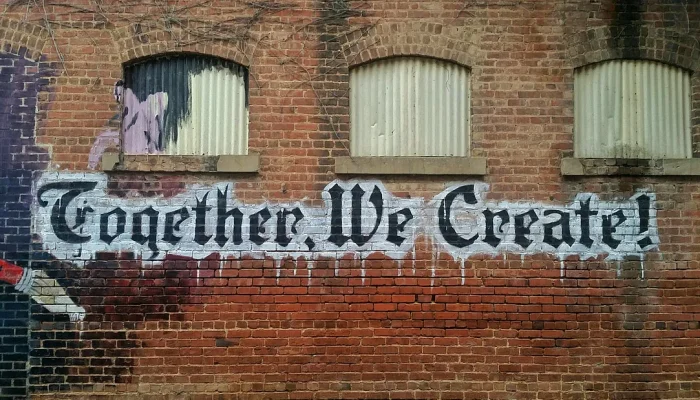Since we started Pacific Content back in 2015 with our first client, Slack, we have been exceptionally lucky to work with a lot of amazing teams at amazing brands. These are a few of the companies we’ve made podcasts with in the last several years:

One of the most frequent queries we get from other podcasters in the branded-content space is our approach for pitching large brands on making their own podcasts. Here are 10 strategies we embrace — several of which might be surprising and counter-intuitive.
Strategy 1 — How to Cold Call Big Brands
We don’t.
We tried doing this.
It never worked.
It felt creepy and gross.
How many LinkedIn InMails do you get from companies trying to sell you web development or attendee lists from conferences or free sales leads? Have you EVER been grateful to receive one of those?
Me neither.
We want to build our brand as the best in the world to work with. The best brands in the world don’t reach out blindly to CMOs.
They earn the attention of CMOs by doing awesome work.
Strategy 2 — How to Pitch
We don’t.
Seriously.
With a few VERY rare exceptions, we don’t pitch.
We believe that great shows are born from great strategy.
And if we have never talked to a client, we don’t know their business goals, we don’t know their marketing strategy, and we don’t know their customers or potential audiences.And if we don’t know any of that information, there is no way we can create an idea for a podcast that will be valuable for them.
Early on at Pacific Content, we met with a very senior marketer at a very large digital travel/lodging company. He told us that they get a huge number of unsolicited pitches — mostly travel and lifestyle shows. The pitches come from creators who want to make their own dream travel show and think it would be a no-brainer for this company to underwrite it.
The marketer wondered out loud how these creators could actually think they would pay for a show from someone who has no idea what their business priorities are, which people they are trying to reach, and what their marketing goals for the quarter or year are.
This was a big early lesson for us.
That is why we don’t pitch.
Strategy 3 — How to Respond to RFPs
With VERY rare exceptions, we don’t respond to RFPs.
We aren’t on RFP email lists, so we honestly don’t even know what work might be out there via RFP.
I know that to many of you, this probably sounds dumb — like we are missing out on a lot of interesting opportunities.
However, it’s for the same reasons that we don’t pitch shows that we also don’t respond to RFPs.
Most RFPs don’t give you enough information to put together a strategy.
RFPs aren’t collaborative. We can’t explore multiple options with clients and work our way towards exactly the right podcast strategy and show.
And RFPs are a huge amount of work with a very low likelihood of success.
RFPs are basically throwing darts with a blindfold on.
Strategy 4 — Process Over Pitches

So if we don’t cold call, and we don’t create pitches, and we don’t respond to RFPs, how do we get anyone to make podcasts with us?
We do our utmost to make great work in a very specialized space with limited competition.
We share our knowledge publicly.
We let brands find us via search and word of mouth.
We champion process over pitches.
That means our ‘pitch’ is participating in a process together.
Yes, we put together proposals for potential clients. However, the proposals are all about process.
The process involves spending a lot of time learning about their business, their customers, and their goals. The process involves collaborative program development with both our teams. The process involves crafting a unique strategy to build an audience for the show.
For the right type of client, this type of process makes perfect sense.
OF COURSE, they need to share information about why they want to make a podcast before deciding what the podcast should be.
OF COURSE, they want to participate in the development of the show.
OF COURSE, they want to know how to use their own brand strengths to build an audience.
For the right type of client, a one-page show pitch doesn’t stand a chance when you hear about a robust, logical process to deliver business results through creativity.
Strategy 5 — Build Deep Domain Expertise. Then Share It.
You can’t win new business if you don’t know what you’re talking about.
Podcasting is a fast-changing industry. Platforms are changing. Measurement is consistently getting better. Audience development strategies are evolving all the time.
So you need people who live and breathe podcasting on your team. You need a world-class team of podcast nerds who love solving problems with audio and creativity.
And then you need to let the world know that you have this expertise.
For Pacific Content, we decided to share pretty much everything we know on this blog.
We write one blog post weekly. We have a weekly email newsletter. And we do podcast interviews and speaking at podcast and marketing conferences.
It’s a way for anyone who is interested in making a podcast to find out who we are, how passionate we are about the podcast space, and that we have some really smart and creative people on our team.
We share everything because we believe that if you’re looking for a partner, you probably want a team of experts that are nice people to deal with.
The next five strategies are about how to be successful when you land a big client. After all, you have to deliver the goods with your existing clients in order to win new clients…
Strategy 6 — Get Your Ego Out of the Way — Relentless Focus on Client Service
Many content producers think they know best because they’ve been creating shows for years.
They know what the best show is.
They know the best way to tell a story.
They know the best production process.
Working with large brands on a podcast, however, is not the place for creative arrogance. It is the place to build a shared understanding of the audio space with your new partners. It is the place to be responsive to questions, to jump on solving problems quickly and thoughtfully, and to ask questions when things don’t make sense.
We try to imagine what our dream agency partner would be like to deal with. Imagine how responsive they would be. Imagine how solutions-focused they would be. Imagine how proactive they would be.
Then we do everything we can to become that type of partner. We hold ourselves to the highest standard of client service we can. We are not always perfect — no one is. But I believe every one of our clients knows we care enormously about their podcast and the overall success of the project.
We want to be so good to work with that our partners value the teamwork as much as the actual podcast.
We want to be so good to work with that our partners tell others about us proactively.
Strategy 7 — Curiosity, Listening, Empathy
There are no copy and paste formulas for making podcasts with brands. Every new client is unique. Every new client is making a podcast for their own reasons — it could be brand positioning, it could be brand awareness, it could be relationship building, it could be thought leadership, it could be customer acquisition. Every company operates differently and has internal constraints that they have to deal with.
Again, this is why we believe that pitches don’t work.
We don’t really know ANYTHING about a potential client if we are pitching.
So we do our best to get really curious and ask lots of questions to find out why they are doing this and what they want a podcast to achieve. We strive to listen carefully and actively. And we constantly remind ourselves to have empathy that they are working in a giant corporation with bureaucracy and processes and approval layers that we don’t fully understand. Making a podcast is not the most important thing in these companies — it’s often a brand new small thing that they have never done before. And it will get delayed. It will need hand-holding. It will need education.
The more we can learn about the people inside the company that are trying to make a podcast happen, the more we can help them. We don’t get frustrated — we get curious and get helpful.
Strategy 8 — Push for Client Success, Not Client Happiness
If we are only focused on making our clients happy, we are only going to tell them what they want to hear. Podcasting is a relatively new and fast-changing space. We have a lot of experience in this space and, when necessary, it’s our job to push back on our clients if we believe that it will help them find more success and push them closer to their business goals.
The most common area where we push back is when the show becomes too focused on the brand instead of where it belongs, on the audience. Many marketers are used to talking about their own products and services, so it’s often a mental shift to focus on delivering differentiated value for the desired audience. When the focus strays off the audience, it’s our job to bring it back. Without value for the audience, no one wins.
It’s hard in the moment to push back, but if it is done with the goal of making the show better for the audience and the business, it’s enormously valuable.
Sometimes this even means telling a potential client very early on that they shouldn’t make a podcast because it won’t be successful.
Strategy 9 — One Team, Deep Collaboration
We see every project as two teams joining forces to create a brand new team — our team comes together with our partner’s team to form the new podcasting team.
We bring audio expertise, audience development expertise, and measurement expertise. Our clients bring brand expertise, industry expertise, and customer expertise. Neither of us will make a great show without the other.
So we come together as a team from day one, act as a team, and use all the available wisdom from our various roles and experience. It also makes for a better show.
Strategy 10 — Shift Your Beliefs about Podcasts from Brands
Smart brands shop around. They do their research. They talk to several different podcast companies before deciding on a partner.
We’ve heard from several major brands that some companies they talk with see working with brands as a way to pay the bills so that they can make the original shows that they REALLY want to make. These companies see working with brands as a means to an end. And their potential partners know it and see it.
Who wants to work with someone who sees you as a paycheque and little else?
We are passionate about turning brands into media companies.
We are passionate about finding big success with our clients by making fantastic shows and building large audiences that love those shows.
When potential clients talk to us, they not only hear our expertise, but they also hear our passion for this space.
And who doesn’t want to work with a passionate partner who is committed to your success?
What strategies do you use for pitching podcasts to potential clients? Are there strategies you’ve used successfully that we haven’t shared here? If so, let us know!
- **This post originated as a presentation for Podcast Day Europe 2020. Thanks, Martin Liss!
Sign up for the Pacific Content Newsletter: audio strategy, analysis, and insight in your inbox. Once a week.




